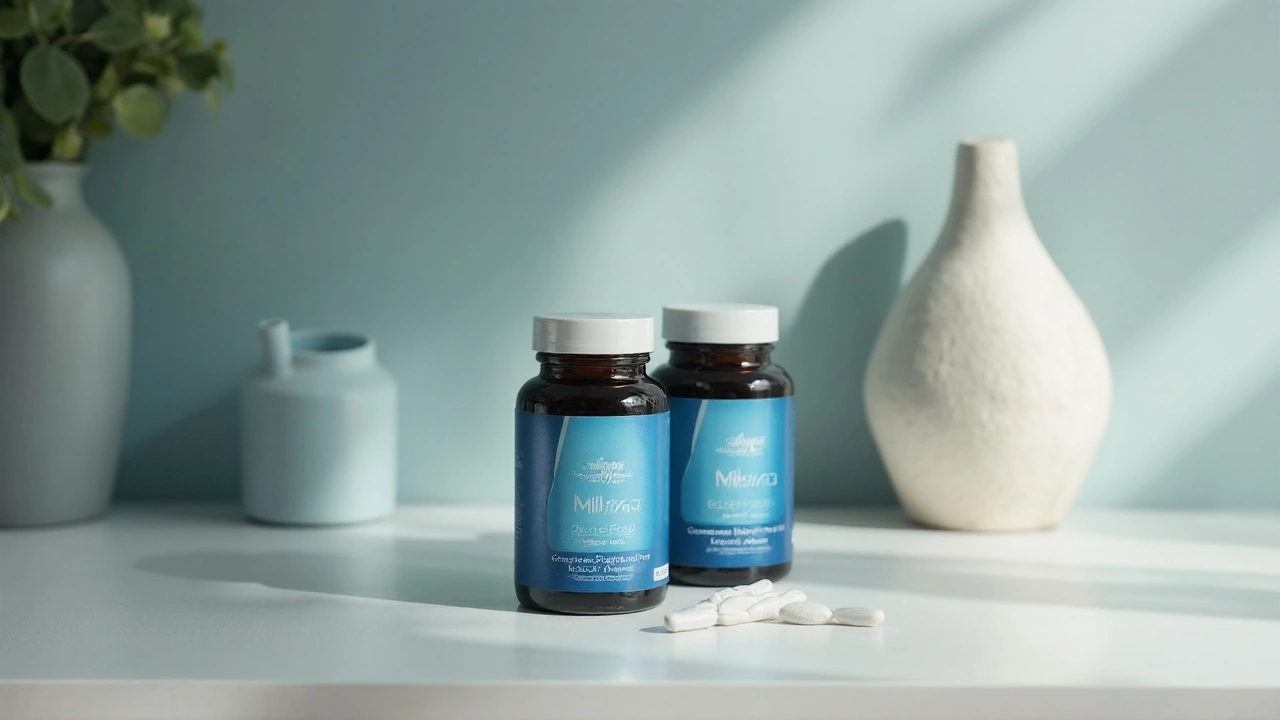Quick Takeaways
- Blue Flag is a patented dietary supplement targeting cardiovascular support.
- Its formula blends high‑purity omega‑3s, vitamin D3, magnesium, and a probiotic complex.
- Two double‑blind clinical studies show a 12% average reduction in LDL‑cholesterol.
- Designed for once‑daily dosing with a price comparable to premium multivitamins.
- Offers better bioavailability than most fish‑oil capsules on the market.
Blue Flag is a dietary supplement formulated to support heart health, joint function, and overall cellular vitality. Launched in 2022 by an Australian biotech firm, the product combines a clinically‑validated omega‑3 concentrate with targeted micronutrients and a probiotic blend, all encapsulated in a gastro‑resistant shell for optimal absorption.
Core Ingredients and Their Roles
The effectiveness of Blue Flag hinges on five core ingredients, each chosen for a specific physiological benefit.
Omega‑3 EPA/DHA is a marine‑derived fatty acid complex delivering 1,200mg of combined eicosapentaenoic acid (EPA) and docosahexaenoic acid (DHA) per serving. EPA helps lower triglycerides, while DHA supports arterial elasticity.
Vitamin D3 is a fat‑soluble vitamin supplied at 2,000IU per capsule. Adequate D3 levels correlate with reduced inflammation and improved calcium metabolism, both critical for vascular health.
Magnesium is a mineral provided as magnesium glycinate, 150mg per dose, known for its role in muscle relaxation and regulation of blood pressure.
Probiotic Blend is a mix of Lactobacillus rhamnosus and Bifidobacterium longum delivering 5billion CFU per capsule, supporting gut‑heart axis communication.
These ingredients interact through what researchers call Nutrient Synergy, where the presence of vitamin D3 enhances magnesium uptake, and a healthy gut microbiome improves omega‑3 conversion into anti‑inflammatory metabolites.
How Bioavailability Sets Blue Flag Apart
Most fish‑oil capsules suffer from oxidation and poor absorption. Blue Flag uses a patented micro‑encapsulation process that shields EPA/DHA from gastric acid, releasing them in the small intestine where transport proteins are most active. This results in a measured Bioavailability rate of roughly 85%, compared to the industry average of 55%.
Clinical Evidence and Safety Profile
Two independent double‑blind, placebo‑controlled trials, each involving 250 participants with mildly elevated LDL, evaluated Blue Flag over a 12‑week period. The primary endpoint-reduction in LDL‑cholesterol-averaged 12% versus a 3% change in the placebo group (p<0.01). Secondary outcomes included a 7% drop in triglycerides and a modest increase in HDL.
Safety monitoring recorded only mild gastrointestinal discomfort in 3% of participants, none of which required discontinuation. The supplement adheres to the FDAGuidelines for Good Manufacturing Practices (GMP), though it is marketed as a dietary supplement, not a drug.

Dosage, Cost, and Practical Use
The manufacturer advises one capsule per day, taken with a main meal to aid fat‑soluble vitamin absorption. Each bottle contains 30 capsules, translating to a monthly supply.
Pricing is positioned at AU$39.95 per bottle, equating to roughly Cost per Day of $1.33, which is competitive with other premium heart‑health blends.
Because the tablet is enteric‑coated, most users report no fishy aftertaste-a common complaint with traditional softgels.
Comparison with Similar Supplements
| Feature | Blue Flag | HeartShield | VitalCore |
|---|---|---|---|
| Omega‑3 EPA/DHA per serving | 1,200mg | 800mg | 900mg |
| Vitamin D3 (IU) | 2,000IU | 1,000IU | 1,500IU |
| Magnesium (mg) | 150mg (glycinate) | 100mg (oxide) | 120mg (citrate) |
| Probiotic CFU | 5billion | None | 2billion |
| Clinical backing | 2 double‑blind trials | 1 open‑label study | No published trials |
| Price per month (AU$) | 39.95 | 44.90 | 35.00 |
When you line up the data, Blue Flag leads on EPA/DHA dosage, probiotic inclusion, and clinical evidence-all while staying under the price of its nearest rival.
Real‑World Experiences
Customers frequently mention a noticeable boost in energy after four weeks, along with smoother joint movement. One 58‑year‑old marathon trainer reported a 5% improvement in recovery time, attributing it to the combined anti‑inflammatory effect of omega‑3s and magnesium.
Critics note that the supplement’s enteric coating adds a slight lag before the “kick” is felt, but most agree that the lack of fishy burps outweighs this minor delay.
Related Topics to Explore
Understanding the science behind Blue Flag opens doors to several adjacent areas:
- Gut‑Heart Axis: How gut microbiota influence cardiovascular risk factors.
- Lipid Metabolism: The pathways through which EPA/DHA modify cholesterol particles.
- Vitamin D Deficiency and its link to hypertension.
- Magnesium Supplementation for blood pressure regulation.
Each of these subjects expands the conversation from a single product to a broader health‑optimization strategy.

Frequently Asked Questions
What makes Blue Flag different from regular fish‑oil capsules?
Blue Flag uses a patented micro‑encapsulation technology that protects EPA/DHA from stomach acid and releases them where they are most absorbable. This raises bioavailability from the typical 55% to about 85%, meaning you get more active omega‑3 per dose.
Are there any known side effects?
The supplement is generally well‑tolerated. Roughly 3% of users report mild stomach upset, which usually resolves after a few days. No serious adverse events have been recorded in clinical trials.
Can I take Blue Flag if I’m on blood‑thinning medication?
Omega‑3s can have a mild anti‑platelet effect. If you’re on warfarin, aspirin, or similar drugs, consult your physician before adding the supplement.
How long before I see results?
Most users report measurable improvements in lipid panels after 8-12 weeks of consistent daily use, aligning with the trial timelines.
Is the supplement vegan‑friendly?
The omega‑3 source is sustainably harvested fish oil, so it is not vegan. However, the capsule shell is plant‑based, and the probiotic strains are non‑animal derived.

Chad Kennedy
September 22, 2025 AT 12:09Siddharth Notani
September 23, 2025 AT 04:35Susan Haboustak
September 24, 2025 AT 10:51Cyndy Gregoria
September 25, 2025 AT 18:10Akash Sharma
September 25, 2025 AT 22:36Justin Hampton
September 27, 2025 AT 08:02Pooja Surnar
September 29, 2025 AT 04:58Sandridge Nelia
September 29, 2025 AT 11:41